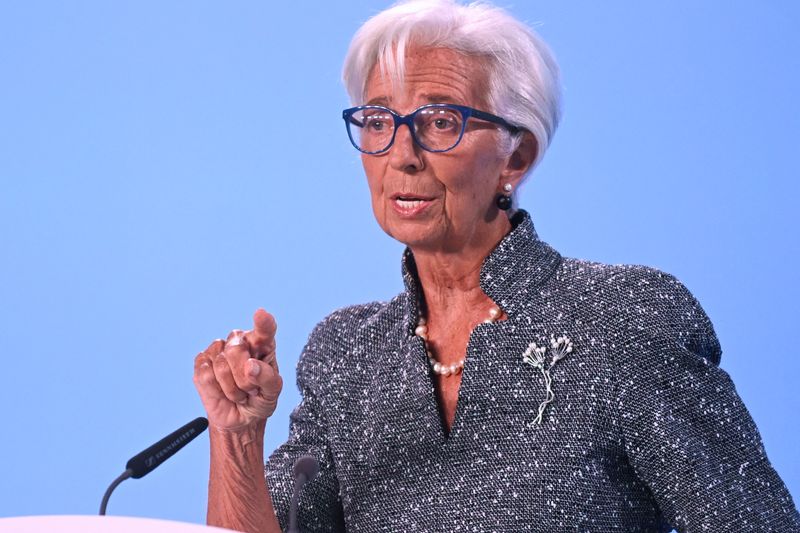FRANKFURT (Reuters) – European Central Bank President Christine Lagarde renewed her call for economic integration across Europe on Friday, arguing that intensifying global trade tensions and a growing technology gap with the United States create fresh urgency for action.
U.S. President-elect Donald Trump has promised to impose tariffs on most if not all imports and said Europe would pay a heavy price for having run a large trade surplus with the U.S. for decades.
“The geopolitical environment has also become less favourable, with growing threats to free trade from all corners of the world,” Lagarde said in a speech, without directly referring to Trump.
“The urgency to integrate our capital markets has risen.”
While Europe has made some progress, EU members tend to water down most proposals to protect vested national interests to the detriment of the bloc as a whole, said Lagarde.
But this is taking hundreds of billions if not trillions of euros out of the economy as households are holding 11.5 trillion euros in cash and deposits, and much of this is not making its way to the firms that need the funding.
“If EU households were to align their deposit-to-financial assets ratio with that of U.S. households, a stock of up to 8 trillion euros could be redirected into long-term, market-based investments – or a flow of around 350 billion euros annually,” Lagarde said.
When the cash actually enters the capital market, it often stays within national borders or leaves for the U.S. in hope of better returns, Lagarde added.
Europe therefore needs to reduce the cost of investing in capital markets and must make the regulatory regime easier for cash to flow to places where it is needed the most.
A solution might be to create an EU-wide regulatory regime on top of the 27 national rules and certain issuers could then opt into this framework.
“To bypass the cumbersome process of regulatory harmonisation, we could envisage a 28th regime for issuers of securities,” Lagarde said. “They would benefit from a unified corporate and securities law, facilitating cross-border placement, holding and settlement.”
Still, that would not solve the problem that few innovative companies set up shop in Europe, partly due to the lack of funding. So Europe must make it easier for investment to flow into venture capital and for banks to fund start ups, she said.

